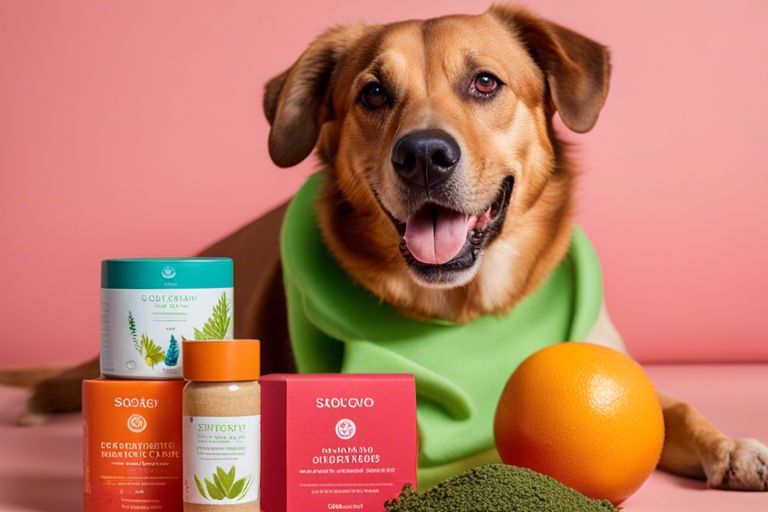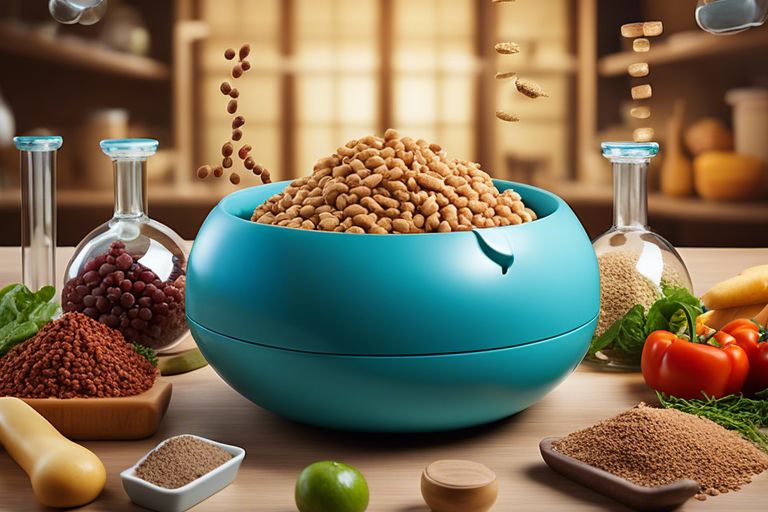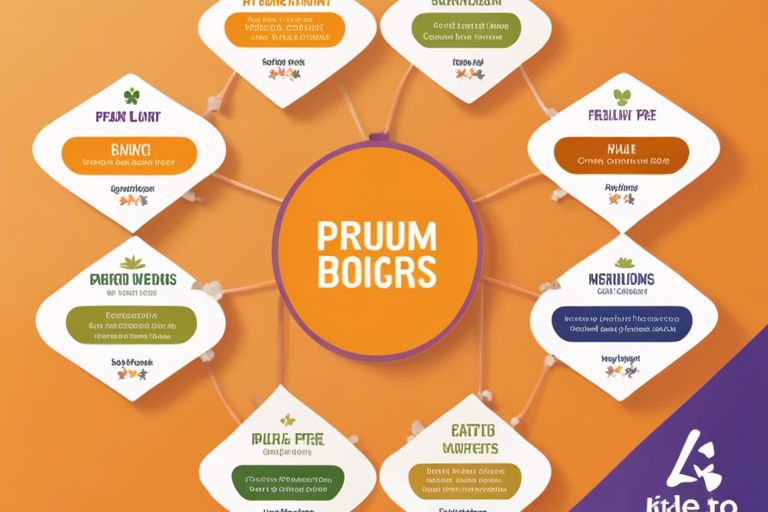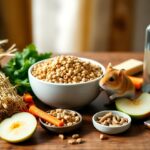In the realm of pet care, the term “organic” has become increasingly popular. But what does it really mean for pet products to be considered organic, and is there any scientific backing to support their claims? In this comprehensive guide, we will delve into the science behind organic pet products and provide you with the essential information you need to make informed decisions for your furry companions.
From the ingredients used to the manufacturing processes involved, organic pet products are designed to promote the health and well-being of our beloved pets. As consumers, it’s important to be aware of the science behind these products to ensure that we are providing our pets with the best possible care. This blog post will explore the research and studies conducted on organic pet products, as well as provide valuable insights and considerations for pet owners looking to make the switch to organic pet care.
Key Takeaways:
- Organic pet products are regulated: Just like organic products for human consumption, organic pet products are also regulated by specific standards and certifications to ensure the quality and integrity of the ingredients.
- Natural ingredients are a priority: Organic pet products prioritize natural ingredients over synthetic ones, reducing the exposure of pets to harmful chemicals and additives.
- Health benefits for pets: Organic pet products can provide various health benefits, such as improved digestion, skin health, and overall well-being for your pet.
- Environmental impact: Choosing organic pet products can also have a positive impact on the environment, as they are made using sustainable and eco-friendly practices.
- Label reading is essential: When choosing organic pet products, it’s important to carefully read labels and understand the ingredients to ensure they align with your pet’s specific needs and dietary requirements.
- Cost considerations: Organic pet products may cost more than conventional ones, but the long-term health benefits and reduced risk of exposure to toxins can outweigh the initial investment.
- Consult with a veterinarian: Before making any significant changes to your pet’s diet or lifestyle, it’s crucial to consult with a veterinarian to ensure that organic pet products are suitable for your pet’s individual health needs.
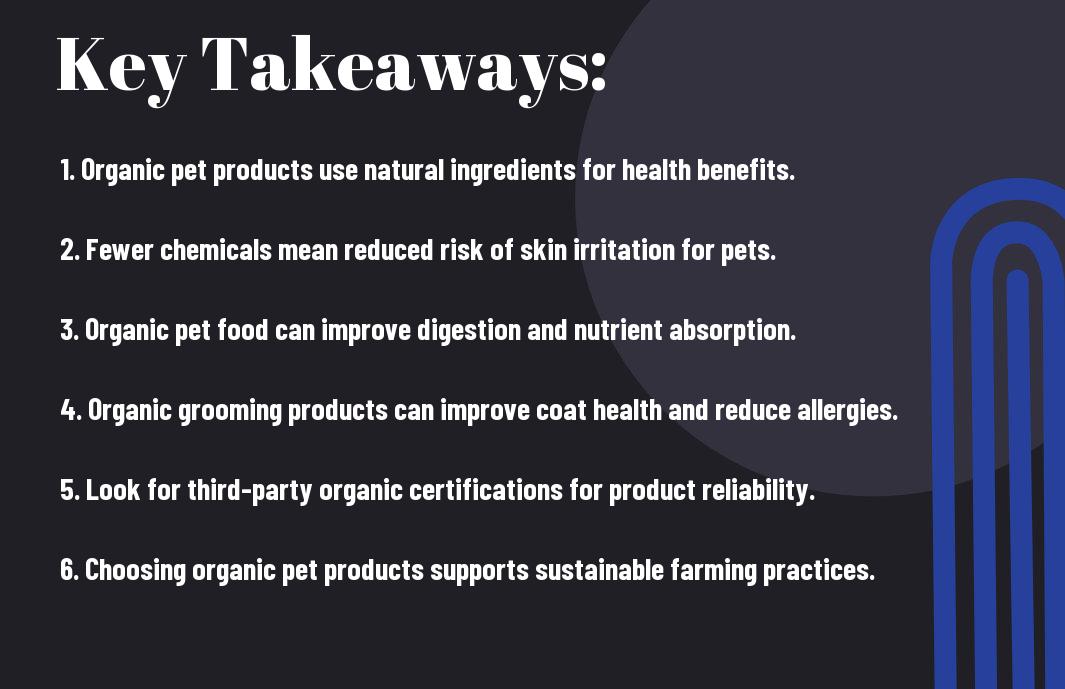
Understanding Organic Products
Definition of Organic
Organic pet products are those that are made from natural ingredients and do not contain artificial additives, pesticides, or genetically modified organisms (GMOs). These products are created using environmentally-friendly methods and are designed to be safe for both pets and the planet.
When it comes to organic pet products, it’s important to understand that the term “organic” refers to the way in which the ingredients are grown and processed. To be considered organic, these products must meet certain standards and regulations set forth by organizations such as the USDA and the Organic Materials Review Institute (OMRI).
Certification and Standards for Organic Products
Organic pet products must meet specific criteria in order to be classified as organic. This includes being made with ingredients that are grown without the use of synthetic fertilizers, pesticides, or genetically modified organisms. Additionally, the manufacturing process must also adhere to strict standards to ensure that the final product remains free from harmful chemicals and other contaminants.
Products that meet these stringent requirements are often labeled with the USDA Organic seal, which indicates that the product has been verified as meeting the necessary standards. It’s important for consumers to look for this seal when shopping for organic pet products, as it provides assurance that the product is indeed organic and has been produced in accordance with established guidelines.
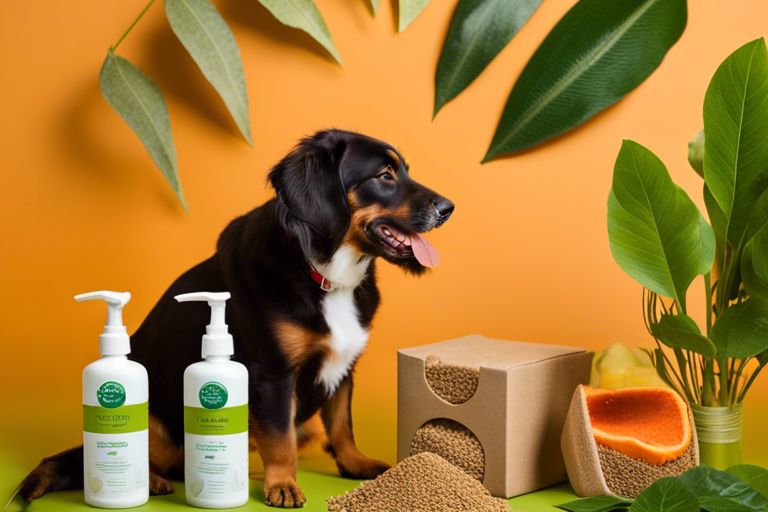
The Benefits of Organic Products for Pets
Not all pet products are created equal. Organic pet products offer a wide range of benefits for our furry friends, from health implications to long-term wellness and a positive environmental impact.
Health Implications
Products labeled as organic for pets are usually free from harmful chemicals, pesticides, and artificial additives. This means that they can contribute to the overall health and wellbeing of your pet, reducing the risk of allergies, skin irritations, and other health issues related to exposure to potentially toxic substances.
Additionally, organic pet products are often made with high-quality, natural ingredients that can support your pet’s immune system, digestion, and overall vitality.
Long-term Wellness
With a consistent use of organic pet products, pet owners can notice long-term improvements in their pet’s health and wellbeing. This can include better energy levels, shinier coat, and a stronger immune system.
Pets who are consistently exposed to organic products can experience a higher quality of life and improved longevity, leading to less frequent visits to the vet and potentially reducing healthcare costs for pet owners in the long run.
Environmental Impact
Wellness-conscious pet owners who prioritize organic products for their pets can also contribute to a positive environmental impact. By choosing products that are sustainably sourced, free from harsh chemicals, and biodegradable, pet owners can help reduce their carbon footprint and promote a healthier planet for all living beings.
Health-conscious pet owners can feel good knowing that the organic products they choose for their pets not only benefit their furry friends, but also contribute to a cleaner and healthier environment for future generations.
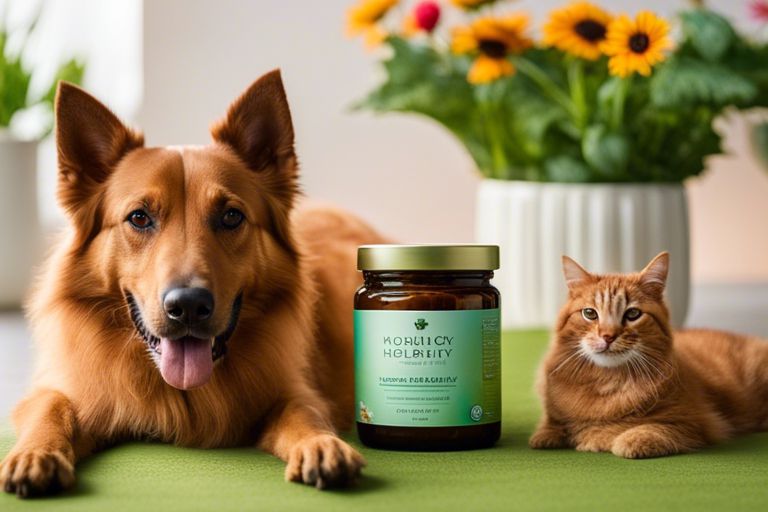
Organic Nutrition for Pets
Despite the growing popularity of organic pet products, many pet owners are still unaware of the benefits of organic nutrition for their furry friends. Organic pet food is made from high-quality ingredients that are free from synthetic additives, pesticides, and genetically modified organisms (GMOs). This ensures that pets receive the essential nutrients they need to thrive, without exposure to harmful chemicals.
Essential Nutrients in Organic Pet Food
Essential nutrients such as protein, carbohydrates, fats, vitamins, and minerals are crucial for the overall health and well-being of pets. Organic pet foods are formulated to provide these nutrients in their most natural and bioavailable forms, ensuring optimal absorption and utilization by the pet’s body. By choosing organic pet food, pet owners can rest assured that their pets are receiving a balanced and complete diet that supports their overall health.
Comparing Organic vs. Non-Organic Pet Foods
| Organic Pet Food | Non-Organic Pet Food |
| High-quality, natural ingredients | May contain synthetic additives and preservatives |
| No GMOs or pesticides | May contain GMOs and pesticide residues |
| Supports sustainable farming practices | May contribute to environmental degradation |
When comparing organic and non-organic pet foods, it’s essential to consider the quality of ingredients, potential exposure to harmful chemicals, and the impact on the environment. Organic pet foods offer a more wholesome and sustainable option that prioritizes the health and well-being of pets.
Understanding Pet Food Labels
Organic pet food labels can be confusing for pet owners to navigate. Understanding the terminology and certifications used on pet food labels is crucial for making informed decisions about the products they purchase for their pets. Look for labels that indicate USDA Organic certification or other reputable organic certifications to ensure the quality and integrity of the product.
Food labels that boast terms such as “natural” or “holistic” may not necessarily meet the standards of organic pet food. It’s important for pet owners to look beyond marketing claims and carefully review the ingredients and certifications to ensure that they are providing the best nutrition for their pets.
Organic Grooming and Care Products
After recognizing the importance of using organic products for your pets, the next step is to understand the specific benefits of organic grooming and care products. From skin and coat care to flea and tick prevention, the use of organic products can promote the overall health and well-being of your furry friends.
Skin and Coat Care
One of the key benefits of using organic grooming products is the promotion of healthy skin and coat for your pets. Organic shampoos and conditioners are formulated with natural ingredients that are gentle yet effective, helping to soothe dry, itchy skin and leave the coat looking shiny and healthy. Additionally, organic grooming products are more likely to be free of harsh chemicals and artificial fragrances, reducing the risk of irritation and allergic reactions for your pets.
Organic Flea and Tick Prevention
The use of organic flea and tick prevention products can help protect your pets from pesky parasites without the use of harmful chemicals. Organic options often utilize natural ingredients such as essential oils, which can effectively repel fleas and ticks while being safe for your pet and the environment. Providing your pet with organic flea and tick prevention can help reduce the risk of diseases such as Lyme disease and tapeworm infestations.
Tick, organic, prevention, products, essential oils, safe, environment
The Importance of Non-Toxic Ingredients
For pet owners, the importance of using non-toxic ingredients in grooming and care products cannot be overstated. Many conventional pet grooming products contain harsh chemicals and synthetic fragrances that can be harmful to pets and potentially lead to health issues over time. By opting for organic products with non-toxic ingredients, you can provide your pets with a safer and more gentle grooming experience while minimizing their exposure to potentially harmful substances.
A conscious choice to prioritize non-toxic ingredients in pet care can have far-reaching benefits for your pets’ long-term health and well-being. Choosing products that are free from parabens, sulfates, and artificial fragrances can help reduce the risk of skin irritation, allergies, and other health concerns, ensuring that your pets receive the best possible care.
Organic Pet Accessories
Keep your furry friend healthy and happy with organic pet accessories. From beds and apparel to toys and playthings, there are a variety of options available for pet owners looking to provide their pets with high-quality, organic products.
Beds and Apparel
For pets who spend a lot of time lounging and relaxing, a comfortable and organic bed is essential. Organic pet beds are made from natural, non-toxic materials that are safe for your pet and the environment. Additionally, organic pet apparel, such as sweaters and jackets, can provide an extra layer of warmth for your pet during colder months, without exposing them to harmful chemicals.
Toys and Playthings
On the other hand, for pets who love to play and stay active, organic toys and playthings are a great option. These toys are made from sustainable materials and are free from harmful chemicals, ensuring your pet’s safety during playtime. Organic toys come in a variety of shapes and sizes, from chew toys to interactive puzzles, providing mental and physical stimulation for your pet.
To provide your pet with the best quality of life, consider investing in organic accessories such as toys and playthings. These products are not only better for your pet’s health, but also contribute to a more sustainable and eco-friendly pet care routine. By choosing organic, you can ensure that your pet’s accessories are free from harmful chemicals and are better for the environment overall.
Challenges and Considerations
Unlike conventional pet products, organic pet products face a number of unique challenges and considerations. From availability and accessibility to cost comparison and budgeting, pet owners need to weigh the pros and cons before making the switch to organic alternatives.
Availability and Accessibility
On the one hand, the growing demand for organic pet products has led to an increase in availability and accessibility. Many pet stores and online retailers now offer a wide range of organic options, making it easier for pet owners to find these products. On the other hand, some rural areas may still have limited access to organic pet products, making it more challenging for pet owners in those areas to make the switch.
Cost Comparison and Budgeting
To truly understand the financial implications of switching to organic pet products, it’s important for pet owners to conduct a cost comparison and budgeting analysis. This can be done by comparing the cost of organic pet products with their conventional counterparts. By breaking down the information into a table, pet owners can clearly see the cost differences and make informed decisions about their budgeting.
Cost Comparison
| Conventional Products | Organic Products |
| $$$ | $$$$ |
For instance, organic pet food may cost 20% more than conventional pet food, while organic pet toys may only be 10% more expensive. This type of comparison can help pet owners prioritize their purchases and make informed budgeting decisions.
Distinguishing Gimmicks from Genuine Organic Products
Products labeled as “organic” may not always meet the standards that pet owners expect. It’s important for pet owners to research and distinguish genuine organic products from gimmicks that capitalize on the organic trend. Look for certifications such as USDA Organic or EcoCert, and examine ingredient lists to ensure that the products meet the organic standards set by regulatory bodies.
Budgeting for organic pet products requires a discerning eye and attention to detail. Some products may be labeled as organic, but the premium price tag does not always guarantee quality or authenticity. Pet owners should be wary of inflated prices and misleading claims, and prioritize products that consistently meet high organic standards.
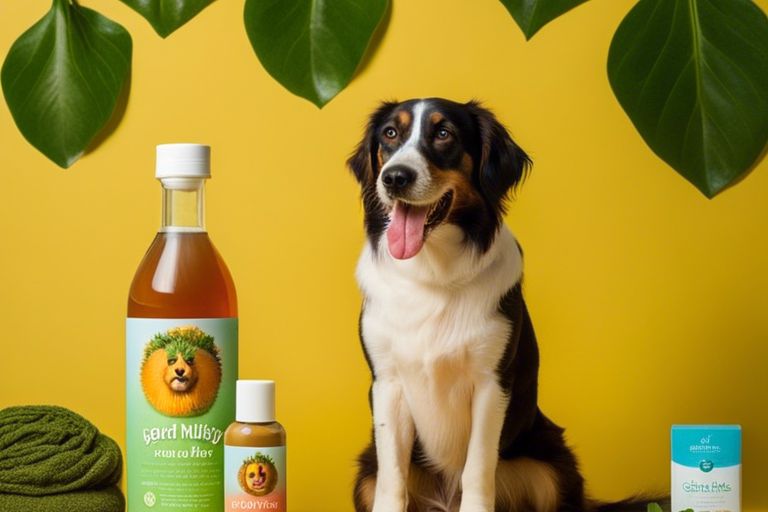
Summing up
With this in mind, it’s important to recognize that the science behind organic pet products is grounded in providing a healthier and more sustainable option for our furry companions. By understanding the benefits of choosing organic options, from reducing the exposure to harmful chemicals to supporting sustainable agricultural practices, pet owners can make more informed decisions about the products they use for their pets. Additionally, the research and development of organic pet products continues to evolve, offering new and innovative solutions that prioritize the well-being of animals.
FAQ
Q: What is the science behind organic pet products?
A: Organic pet products are based on the principles of using natural, non-toxic ingredients that are free from synthetic chemicals. These products are formulated to provide nourishment and care for pets without the use of harmful additives.
Q: How do organic pet products benefit pets?
A: Organic pet products are designed to promote the overall health and well-being of pets. They can help improve skin and coat health, support digestion, and provide essential nutrients without the negative effects of artificial ingredients.
Q: Are organic pet products safe for all pets?
A: While organic pet products are generally considered safe for most pets, it’s important to consult with a veterinarian before introducing any new products, especially if your pet has specific health concerns or allergies.
Q: What should pet owners look for when choosing organic pet products?
A: When selecting organic pet products, it’s important to look for certifications such as USDA Organic or Non-GMO Project Verified. Additionally, check the ingredient list for natural, recognizable ingredients and avoid products with artificial preservatives, colors, or flavors.
Q: Can organic pet products be as effective as traditional pet products?
A: Yes, organic pet products can be just as effective, if not more so, than traditional pet products. Many organic ingredients offer valuable nutritional benefits and can contribute to improved health and vitality in pets.
